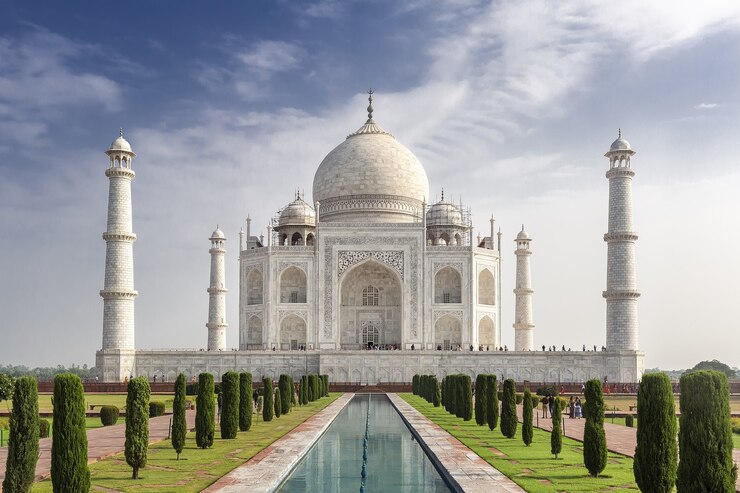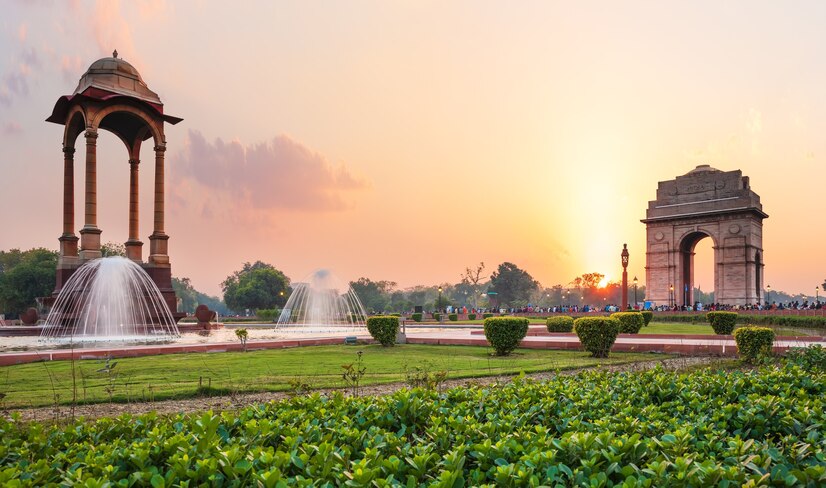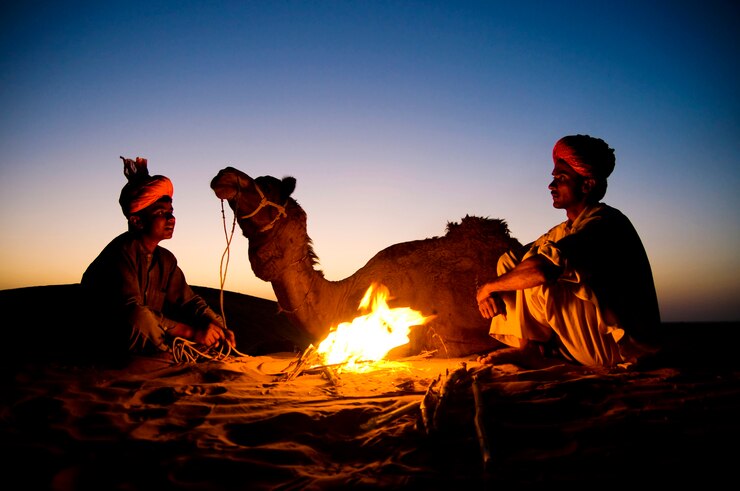Featured
15% Off
Golden Triangle Tour (2N Delhi + 1N Agra + 2N
Jaipur)
Duration
2N Delhi + 1N
Agra + 2N Jaipur
Tour Type
Adventure,
Foodie
Location
Delhi+Agra+Jaipur
Arrive Delhi and transfer to your Hotel. India’s capital and a
major gateway to the country, contemporary Delhi is a bustling metropolis, which
successfully combines in its folds - the ancient with the modern. Amidst the
fast-spiraling skyscrapers the remnants of a bygone time in the form of its many
monuments stand as silent reminders of the region’s ancient legacy. The first
impressions for any visitor traveling in from the airport are of a spacious,
garden city, tree-lined with a number of beautiful parks.Afternoon is free to
walk around in the colorful and bustling bazaars for personal exploration or
shopping
Lorem ipsum dolor sit amet consectetur adipiscing elit Ut et massa
mi.
Aliquam hendrerit
urna. Pellentesque sit amet sapien fringilla, mattis ligula consectetur,
ultrices Maecenas
Include/ Exclude
-
Accommodations
-
Meals
-
Transportation
-
Activities
-
Guides
-
Airfare
-
Additional Meals
-
Optional Activities
-
Travel Insurance
-
Personal Expenses
Tour Plan
Arrive Delhi
Arrive Delhi and transfer to your Hotel. India’s capital and
a major gateway to the country, contemporary Delhi is a
bustling metropolis, which successfully combines in its
folds - the ancient with the modern. Amidst the
fast-spiraling skyscrapers the remnants of a bygone time in
the form of its many monuments stand as silent reminders of
the region’s ancient legacy. The first impressions for any
visitor traveling in from the airport are of a spacious,
garden city, tree-lined with a number of beautiful
parks.Afternoon is free to walk around in the colorful and
bustling bazaars for personal exploration or shopping.
Overnight stay at your Hotel.
Sight Seeing Included:
colorful and bustling bazaars
Airport to Hotel : PVT Transport
- Sight Seeing Included:
- Patwaon Ki Haveli / Salim Singh Ki Haveli /
Nathmal Ki
Haveli
- Airport to Hotel : PVT Transport
After breakfast proceed for tour of
Old and New Delhi. Old Delhi, the Mughal Capital of
Shahjahanabad. Visit the Jama Masjid which is the principal
mosque of Old Delhi in India. Commissioned by the Mughal
Emperor Shah Jahan, builder of the Taj Mahal, and completed
in the year 1656 AD, it is the largest and best-known mosque
in India. It lies at the origin of a very busy central
street of Old Delhi, the Chawri Bazar Road. The mosque of
Friday was built from 1644 to 1658 during the reign of
Shahjahan. The mosque is 80 m long and 27 m wide. The
courtyard can accommodate 25,000 worshippers and occupies
408 square feet. Later we proceed to visit Raj Ghat where
Mahatma Gandhi – The Father of Nation, was cremated and
drive past the Red Fort [ from outside] - the palace for
Shahjahan’s new capital, Shahjahanabad, the seventh Muslim
city in the Delhi site. Wander in the busy streets of the
mile long Chandni Chowk, popularly called “The Silver
Street”. Enjoy the ‘Cycle Rickshaw’ ride in Old Delhi. In
the afternoon proceed for tour of New Delhi, which reflects
the legacy the British left behind. The division between New
and Old Delhi is the division between the capitals of the
British and the Mughals respectively. The division in the
walled city and New Delhi also marks the division in the
lifestyles. The walled city is all tradition where one will
be able to glean a past lifestyle in all its facets, colours
and spells. New Delhi in contrast, is a city trying to live
up to the best of 21st century standards. The tour to
Imperial Delhi will start by visit to the Qutab Minar, the
tallest stone tower in India. The Qutab Minar was started in
1199 AD by Qutab-ud-Din Aibak and completed by the sultan's
successor and son-in-law, Iltutmish. The building is 72.5 m
high and has 379 steps from the bottom to the top. The Minar
is tapered with the diameter of the base is 14.3 m while at
the top floor it is 2.7 m. The Qutab Minar is still the
highest stone tower as well as one of the finest Islamic
structures ever raised in India. Later visit Humayun’s Tomb,
built by the widow of the second Mughal Emperor, Humayun, it
is an outstanding monument in the Indo-Persian style, a
precursor of the Taj Mahal. Drive past the imposing India
Gate, the Parliament building and the Rashtrapati Bhawan,
the President’s residence. Afternoon is free to walk around
in the colorful and bustling bazaars for personal
exploration or shopping. Overnight stay at your Hotel.
Breakfast Included
Sight Seeing Included:
Humayun’s Tomb / Jama Masjid / long Chandni Chowk / Qutab
Minar / Raj Ghat / Red Fort
After breakfast drive to Agra;
Arrive Agra and transfer to your hotel. Agra came into
limelight during the rule of Afghan King Sikandar Lodhi -
who had made it the capital of his empire. Later in 1526
A.D., the Mughal Emperor Babar took upon himself the task
for rendering Agra, a unique character and beauty of its
own. Agra - in terms of ambiance is still associated with
its Mughal period. The Mughals, besides being great rulers,
were also great builders and they preserved their best
architectural wonders for Agra & its neighbourhood. It has
many wonderful monuments and the Taj Mahal, the greatest of
them all, is a masterpiece of Mughal architecture at its
best. Later visit the Taj Mahal (closed on Friday) - The Taj
Mahal (closed on Friday) - The Taj Mahal is everything that
has been said about it and more. Built by the Mughal Emperor
Shah Jahan as an expression of his love for his wife Mumtaz
Mahal, in mid-17th century, the Taj Mahal is truly one of
the wonders of the world. Though the Taj appears to be
amazingly perfect from almost any angle, it is the close-up
marble inlay work, which is really astounding. Later visit
The Agra Fort, an outstanding example of Mughal
architecture. Agra Fort - the seat and the stronghold of the
Mughal Empire under successive generations. This was the
seat of Mughal rule. Shahjahan added the impressive quarters
and the mosque while Aurangzeb added the outer ramparts.
Visit its Hall of Public Audience and its Royal Pavilions.
Besides the historical monuments, one can also explore
Agra’s rich heritage of handicrafts in its markets. Also
visit Itmad ud Daula -This tomb was built in 1622 for Ghiyas
Beg, father of Empress Noor-Jahan, the wife of Emperor
Jahangir. It is beautifully conceived in white marble,
mosaic and lattice and set a precedent as the first Mughal
building to be faced with white marble inlaid with
contrasting stones. Sometimes also called ‘Baby Taj’, it is
small, intimate and has a gentle serenity. Afternoon is free
to walk around in the colorful and bustling bazaars for
personal exploration or shopping. Overnight stay at your
Hotel.
Breakfast Included
Agra - Jaipur
After breakfast proceed drive to Jaipur visiting Fatehpur
Sikri enroute. The deserted red sandstone city was built by
the Great Mughal Emperor, Akbar, as his capital and palace
in the late 16th century. It was abandoned soon after it was
built when the local wells went dry, and it remains today in
much the same condition that it was over 300 years ago. It
is complete with palaces and mosques and used to be a town
larger than London when it was originally constructed. Now
it is an extraordinary place to wander around with its
buildings in near perfect condition. Later drive to Jaipur;
arrive in Jaipur and transfer to hotel. The capital of
Rajasthan Jaipur - popularly known as the “Pink City” as the
Pink sandstone was used to construct the buildings in the
old walled city. Jaipur owes its name, its foundation, and
its planning to the Great-Warrior-Astronomer Maharaja Jai
Singh II (1699–1744 AD). Jaipur (City of Victory) was
founded by Maharaja Sawai Jai Singh II in 1727. It is the
only city in the world symbolising the nine divisions of the
Universe through nine rectangular sectors sub-dividing it.
The architect who formalised the city’s plans on the Shilpa
Shastra, the epic Hindu treatise on architecture, mixed it
with the sublimity of the Mughal and Jain influences of
those times. The city was painted pink in 1853 in honour of
the visit by Prince Albert. Except for the busy traffic of
bicycles, cars, and buses, little seems to have changed.
Afternoon is free to walk around in the colorful and
bustling bazaars for personal exploration or shopping.
Overnight stay at your Hotel.
Breakfast Included
Agra - Jaipur
After breakfast proceed drive to Jaipur visiting Fatehpur
Sikri enroute. The deserted red sandstone city was built by
the Great Mughal Emperor, Akbar, as his capital and palace
in the late 16th century. It was abandoned soon after it was
built when the local wells went dry, and it remains today in
much the same condition that it was over 300 years ago. It
is complete with palaces and mosques and used to be a town
larger than London when it was originally constructed. Now
it is an extraordinary place to wander around with its
buildings in near perfect condition. Later drive to Jaipur;
arrive in Jaipur and transfer to hotel. The capital of
Rajasthan Jaipur - popularly known as the “Pink City” as the
Pink sandstone was used to construct the buildings in the
old walled city. Jaipur owes its name, its foundation, and
its planning to the Great-Warrior-Astronomer Maharaja Jai
Singh II (1699–1744 AD). Jaipur (City of Victory) was
founded by Maharaja Sawai Jai Singh II in 1727. It is the
only city in the world symbolising the nine divisions of the
Universe through nine rectangular sectors sub-dividing it.
The architect who formalised the city’s plans on the Shilpa
Shastra, the epic Hindu treatise on architecture, mixed it
with the sublimity of the Mughal and Jain influences of
those times. The city was painted pink in 1853 in honour of
the visit by Prince Albert. Except for the busy traffic of
bicycles, cars, and buses, little seems to have changed.
Afternoon is free to walk around in the colorful and
bustling bazaars for personal exploration or shopping.
Overnight stay at your Hotel.
Breakfast Included
Depart Jaipur
Today in time transfer to Jaipur Airport / Railway Station to board your flight / train for onward journey to your next destination
Hotel to Airport : PVT Transport
Breakfast Included




.png)
